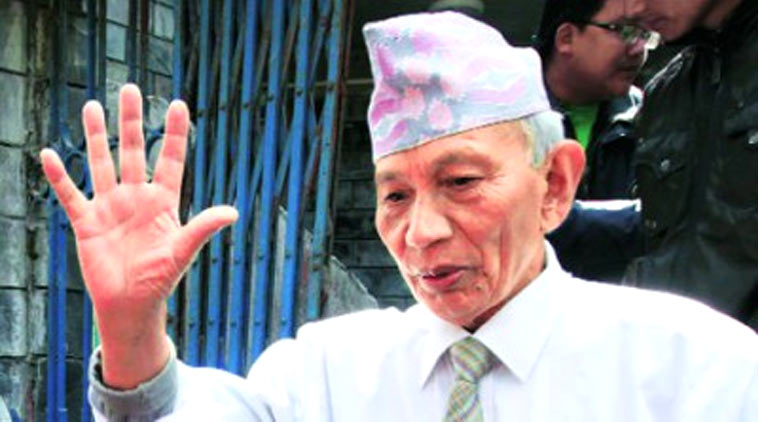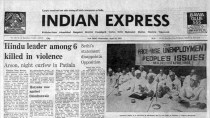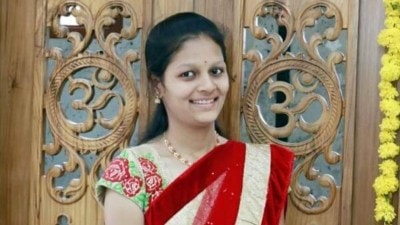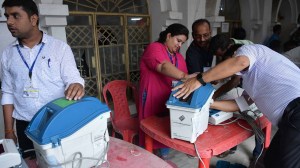- India
- International
Exiled from the hills
Subash Ghising squandered his gains, but nobody denies his legacy.
A legend in his own lifetime, Subash Ghising also faced oblivion, and passed away almost a political recluse in New Delhi’s Sir Ganga Ram Hospital on Thursday. It was a coincidence that he died in a place close to Karol Bagh, his home during a series of negotiations with the Centre in the mid-1980s. Then Prime Minister Rajiv Gandhi recognised the strength of Ghising’s movement for the “autonomy of Darjeeling”, partly objectively and partly to annoy the CPM-led government that had turned West Bengal into a “red fortress” for nearly a decade by then.
The Congress government at the Centre was also quick to cash in on the resentment among India’s Nepali-speaking people by according official status to the language and including it in the Eighth Schedule of the Constitution. Morarji Desai’s Janata government, an ally of the CPM, had turned this down in 1978. That gesture from the Congress brought it closer to the Nepali sentiment against the Left Front in West Bengal. And Ghising — often called “baulaha budo” (mad old man) by locals — found in it the right moment to organise a movement for an autonomous Darjeeling province. He would, as locals used to say, often visit cinema halls and explain his movement and its demands to the people coming out. He would focus more on “Bengali hegemony” and speak against Delhi less, giving the CPM occasion to “expose” the Delhi-Ghising “nexus”, with some calling him another Bhindranwale in the making.
As Union home minister, Buta Singh played a key role and by 1988, a much diluted version of the “autonomous Darjeeling hill province” was agreed upon between the Centre and the agitating group, with the state government registering its opposition. But that also marked the beginning of the decline in Ghising’s stature, till then the tallest leader despite a few defections. He made some shrewd moves initially as he threatened, with calculated risk and perhaps a tacit understanding with the Centre, that Darjeeling was closer to Nepal — historically and culturally — and the denial of its rights would lead to a harsher reaction from its people. He dispatched several petitions to the international community, including to the king of Nepal, for the protection of Gorkha rights in Darjeeling.
As PM, Rajiv Gandhi saw nothing wrong with it. He told a congregation of the Rashtriya Seva Dal — a chapter of the Congress party — in mid-1987 that it was only natural for Ghising to see a greater affinity and cultural bond with Nepal. This was an indirect indictment of the West Bengal government for having been responsible for the plight of the Gorkhas and for not being able to “treat them at par with the Bengalis”.

Born in 1936, Ghising apparently first raised the Gorkha issue when he was in college. But such student voices had no impact, since the other organisations of the Nepalese in Darjeeling post-Independence mostly worked for the development of the Nepali language. Leaders with greater potential either joined mainstream parties (including the CPI and CPM) or settled in Nepal permanently. Before he formed the Gorkha National Liberation Front (GNLF) in 1980, Ghising seemed to have been in two minds — whether to go for secession or to limit his demand to autonomy. His early speeches were more fiery, bordering on secessionist. In one of his interviews given to me, at a Karol Bagh hotel in 1986, he criticised some Gorkha leaders of Darjeeling for not having accepted the British offer for a separate Darjeeling on the eve of Independence. But subsequently, he chose to target the CPM that ruled West Bengal and spread its influence in Darjeeling as well. His dislike of Bengalis, especially the CPM, was apparent as he chose to support Buta Singh, Inderjeet, Jaswant Singh and, as part of that legacy, S.S. Ahluwalia — all outsiders — in parliamentary elections since the late 1980s, to defeat the more rooted CPM candidates.
Ghising, as executive head of the Darjeeling Gorkha Hill Council (DGHC), came in for sharp criticism from his own followers and community. He was ultimately dislodged by one of his most trusted colleagues, Bimal Gurung, who rebelled and formed the Gorkha Janmukti Morcha (GJM) in 2007, threatening to wage yet another war for a more autonomous province. This time round, more than the state government, Ghising was the target. A year later, a defeated and humiliated Ghising moved down to the plains in Jalpaiguri. The combination of political defeat, isolation and age contributed to the rapid deterioration of his health.
The criticism Ghising faced was for not managing, properly and efficiently, the outcome of his movement when he took over as the DGHC chief. But despite his failures, he is recognised — by foes, friends and followers — as someone who gave a voice to the cause he championed and led it to partial success.
40 Years Ago
EXPRESS OPINION
Best of Express

More Explained
Apr 19: Latest News
- 01
- 02
- 03
- 04
- 05









































